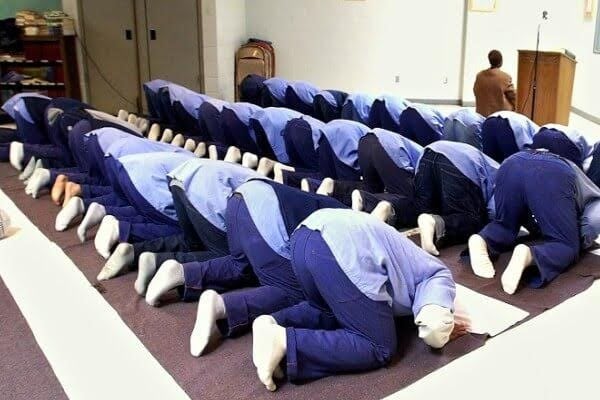Can an Illegitimate Son Lead Salat?
Hanafi Fiqh
Answered by Mufti Muhammad ibn Adam
Question : The notion amongst some communities that an illegitimate offspring can not lead in prayer (salat) or that prayer behind an Imam who is illegitimate is invalid or disliked is a notion that is erroneous and absurd. The fact is that if an illegitimate person is righteous and possesses the necessary knowledge to properly fulfil the conditions of Salat, then there is nothing wrong whatsoever in praying behind him.
Answer : Allah Most High says:
“And no bearer of burden shall bear the burden of another.” (Qur’an, 17:15)
The confusion may have arisen from a text found in many classical Hanafi Fiqh works stating that offering prayer behind a slave person, a blind man and an illegitimate child is disliked (makruh). (See for example: Maraqi al-Falah, P: 302)
However, this must not be taken at face value but understood correctly in light of other explanatory texts of the Hanafi School. Classical Hanafi jurists (fuqaha) explain that the legal cause behind the disliked nature of praying behind an illegitimate person is his lack of knowledge or inability to properly fulfil the conditions of prayer. As such, if this legal cause is not present, then the disliked nature of praying behind him no longer remains.
The renowned Hanafi jurist, Imam Ibn Abidin (may Allah have mercy on him), whilst explaining the text of Al-Durr al-Mukhtar that it is disliked to pray behind an illegitimate person, states:
“This is due to the fact that he [i.e. the illegitimate] does not [normally] have a father to raise him, train him and teach him, hence ignorance (jahl) overcomes him [and thus, he is not able to properly fulfil the conditions of prayer].” (Radd al-Muhtar ala ‘l-Durr al-Mukhtar, 1/562)
Imam Tahtawi (may Allah have mercy on him) states in his super-commentary (hashiya) on Maraqi al-Falah:
“This [i.e. the disliked nature of an illegitimate person leading Salat] is due to the fact that he does not [normally] have a father to teach him, hence ignorance (jahl) overcomes him. However, if he possesses [necessary] knowledge [to lead Salat], there is no dislike.” (Hashiyat al-Tahtawi ala Maraqi al-Falah, P: 302)
The above few quotes clearly establish that the text found in classical Hanafi works mentioning the disliked nature (karaha) of praying behind a person born out of wedlock is conditional to him being ignorant and incapable of fulfilling the conditions of prayer. The text was written in a time when ignorance of the laws of Islam was generally more prevalent in illegitimate children than those born out of legal marriages. Thus, despite being illegitimate, if a person possesses the necessary characteristics of being an Imam, then he can be an Imam without any dislike.
In fact, if an illegitimate person is more righteous and more knowledgeable than others in regards to the rules of prayer, then he is more worthy of leading the prayer.
Imam Ibn Abidin (may Allah have mercy on him) explains in his Radd al-Muhtar quoting Al-Bahr al-Ra’iq and Al-Ikhtiyar that if the legal cause behind the disliked nature of praying behind an illegitimate person [i.e. ignorance] is not present, such that he is superior (afdhal) than the one born out of a legal marriage, then the ruling will be reversed [meaning it will be somewhat disliked to pray behind the one born out of a legal marriage, and not him ]. (Radd al-Muhtar, 1/560)
Therefore, be assured brother that it is perfectly fine for you to lead others in Salat, as long as you possess the necessary knowledge to properly fulfil the conditions of prayer, and don’t let anyone tell you otherwise. Thank Allah for blessing you with Islam. May Allah keep all of us steadfast on Islam and take us away from this world in a state of Iman and Faith, Ameen Ya Rabb.
And Allah knows best
Muhammad ibn Adam
Darul Iftaa
Leicester , UK
